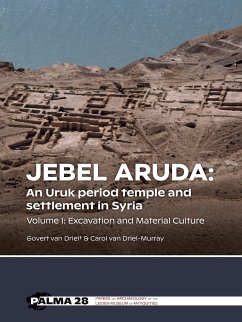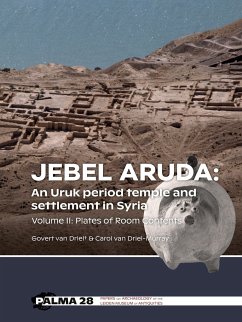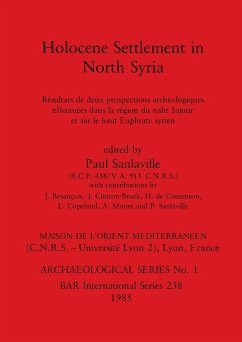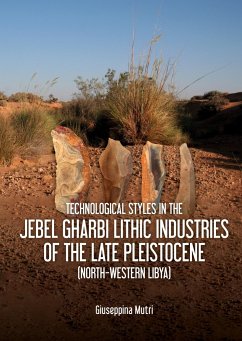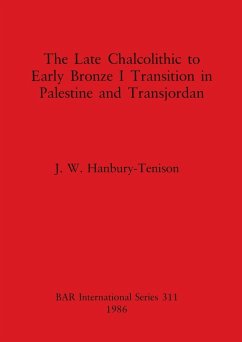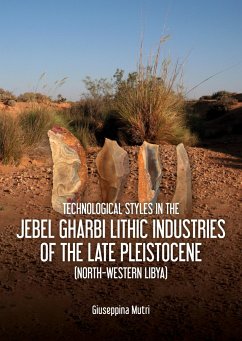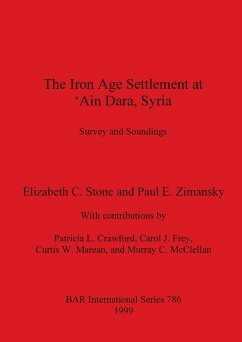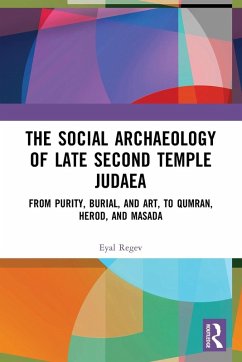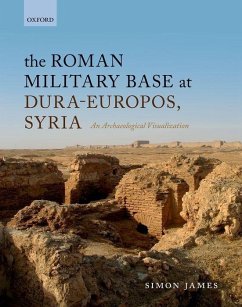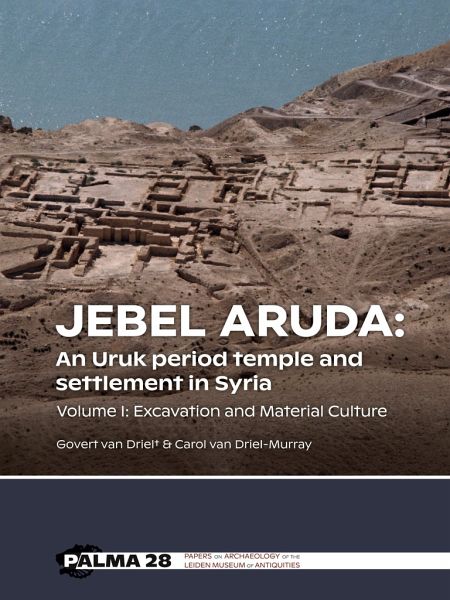
Jebel Aruda: An Uruk period temple and settlement in Syria (Volume I)
Versandkostenfrei!
Versandfertig in 1-2 Wochen
92,99 €
inkl. MwSt.
Weitere Ausgaben:

PAYBACK Punkte
46 °P sammeln!
Jebel Aruda, a prominent mountain ridge overlooking the Taqba Dam lake in northern Syria, was the location of a remarkable settlement that flourished between c. 3300 and 3100 BC during the so-called Uruk period. For the inhabitants the sacredness of this high place, evidenced by the discovery of a large temple complex, seems to have taken precedent over its impractical location far above the valley of the Euphrates River. The site was destroyed under unknown circumstances, leaving behind the spectacular remains of a well preserved temple complex and numerous houses filled with a rich collectio...
Jebel Aruda, a prominent mountain ridge overlooking the Taqba Dam lake in northern Syria, was the location of a remarkable settlement that flourished between c. 3300 and 3100 BC during the so-called Uruk period. For the inhabitants the sacredness of this high place, evidenced by the discovery of a large temple complex, seems to have taken precedent over its impractical location far above the valley of the Euphrates River. The site was destroyed under unknown circumstances, leaving behind the spectacular remains of a well preserved temple complex and numerous houses filled with a rich collection of material culture and administrative tools such as bullae and tablets.A Dutch team excavated the site between 1972 and 1982 while the Tabqua Dam was under construction. These two volumes present the results of these excavations and subsequent research of the remains, with special emphasis on the relationship between the domestic architecture and the finds.These richly illustrated volumesaim to facilitate further research and analysis of an exceptional, short-lived Uruk period settlement, comprising domestic architecture associated with a monumental temple complex. It is intended to appeal to readers interested in Mesopotamia and ancient Syria, as well as archaeologists concerned with architectural and locational analysis in a broader perspective.Volume I presents the results of the excavation, with a discussion of the individual houses and the history of the temple buildings, together with the pottery corpus, the administrative artefacts and sealings, as well as shorter chapters on other material categories (flint, stone etc). The contents of each individual house are presented in Volume II.ContentsVOLUME I: TEXTI Preface C. van Driel-MurrayII ForewordIII Explanatory notes to the text and illustrations, conventions and abbreviationsIV Previous publications1 The Site and its Exploration2 The Temple Area3 The site and the temples: aspects of architecture and urbanplanning. D.E. Boas-Vedder4 The Houses to the North of the Temples5 The Saddle with Houses SI, SII and SIII6 The Area at the Foot of the High Terrace: Houses SIVA, SIVB, SVIII and the Kitchen Area SIVC7 The High Terrace: Houses SVA, SVB, SVI and SVII8 The Pottery Corpus9 Administrative Artefacts: Tablets, Tokens, Seals and Sealings10 The Flaked Stone Assemblage at Jebel Aruda11 Summary Analysis of Botanical and Faunal Samples12 Miscellaneous Artefacts13 Evidence for Craft Production and Processing14 General Observations on the Domestic Complexes15 Conclusions16 Bibliography17 Appendix 1: Collected Sections18 Appendix 2: Room Summaries19 Appendix 3: Sherd Counts



